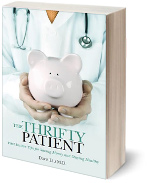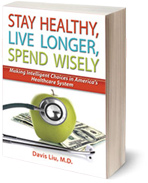Why Obamacare Will Make Americans Less Healthy and More Insolvent.
As people select health insurance during open enrollment, what many don’t realize is how the creation of the health insurance exchanges or health insurance marketplace via the Affordable Care Act aka Obamacare will ultimately result in Americans becoming less healthy and more insolvent. Let’s review the pros and cons.
 Although the Affordable Care Act aka Obamacare provided important benefits of expanding and ensuring coverage with preventive benefits, insurability of all regardless of prior medical conditions, and uncoupling health insurance from employment, it is the creation of the health insurance exchanges that will result in Americans becoming less healthy and more insolvent. In a few years, the annual ritual of open enrollment you and I take for granted and how we get care will be fundamentally different.
Although the Affordable Care Act aka Obamacare provided important benefits of expanding and ensuring coverage with preventive benefits, insurability of all regardless of prior medical conditions, and uncoupling health insurance from employment, it is the creation of the health insurance exchanges that will result in Americans becoming less healthy and more insolvent. In a few years, the annual ritual of open enrollment you and I take for granted and how we get care will be fundamentally different.
Insurance Exchange Has Pros and Cons
Allowing people to buy health insurance on a public exchange the same way we purchase airline tickets, cars, and other goods and services has value. Insurers provide identical benefit packages and compete on value and brand. As health insurance becomes subject to market forces and competition, many believe health care will be forced to become more efficient, affordable, and accessible. Except for individuals who qualified for federal subsidies, let consumers see the true health insurance cost and make their own decisions and trade-offs.
However the concept of an insurance exchange will affect those who receive coverage through their employers. Typically employer sponsored health insurance, especially those offered by large companies, has better benefits than individual insurance. For CEOs and CFOs, the largest and most unpredictable annual expense is the cost of providing health insurance to employees. Companies bear a significant portion of the health care premium and shield workers from the actual true cost.
To save money, employers will stop offering health insurance as a defined benefit and instead offer health insurance options via a private health insurance exchange. The Kaiser Family Foundation Employer Health Benefits report noted “private marketplaces for larger employers, if it continues, may signal a new direction where individual employers are less engaged in plan design and management and where more decisions and economic responsibility is shifted to employees.” Though employers will provide a defined amount or contribution to employees to help defray costs, that expense will be less than what companies currently pay. The three million of Americans who get health insurance in this manner will increase to 40 million by 2018.
Getting less should be déjà vu
Getting less should be déjà vu for those who remember when companies shifted from pension plans, a defined benefit, into defined contribution plans, 401(k)s, for retirement planning. When company pension plans were too expensive, they were stopped.
Workers paid a significant price. Despite an entire industry of financial services, advisors, and online tools to help individuals with retirement planning, a majority of Americans do not have adequate funds and cannot retire. The Employee Benefit Research Institute Retirement Confidence Survey noted that 65 percent planned on working during retirement for pay. Sixty percent of individuals surveyed who had no pension plan had less than $25,000 in investments.
As health insurance coverage becomes more of an individual’s financial responsibility, it is possible our nation will be even less healthy and more insolvent than we are today. Already, the leading cause of personal bankruptcy is due to medical costs. Might it get worse?
Walmart, Apple, Facebook to Provide Health Care – Better or Worse Care?
Without a doubt, there will be the creation of an entirely new industry to support people not only with selection of health insurance but overall health management much the as we do for retirement planning. With health care consuming a fifth of the gross domestic product, is it any surprise that the CVS drugstore chain rebranded itself as CVS Health, banned the sale of cigarettes, and affiliated itself with UCLA Health System? Isn’t it odd that Walmart just opened primary care clinics as it positions itself as a primary care provider? Why are Silicon Valley juggernauts like Apple entering the wearables market with Apple Watch and Facebook evaluating how it might use its data to impact users’ health as venture capitalists pour money into various health care startups?
Is this how we make care more efficient, affordable, and accessible by using market forces and competition?
Like retirement planning, it is possible we will spend more to help us with this new individual responsibility and have little to show for it.
I hope I’m wrong.
What to you think?
 Get important exclusive advice and tips on how to save money while staying healthy.
Get important exclusive advice and tips on how to save money while staying healthy. Learn how to make intelligent choices in America's Healthcare System.
Learn how to make intelligent choices in America's Healthcare System.
I just found your blog today and it’s refreshing to see that there are others who see things the way that I do. It’s encouraging because I know that I’m not alone and that there are others who are advocating physcian leadership, critical thinking, and courage to speak up.